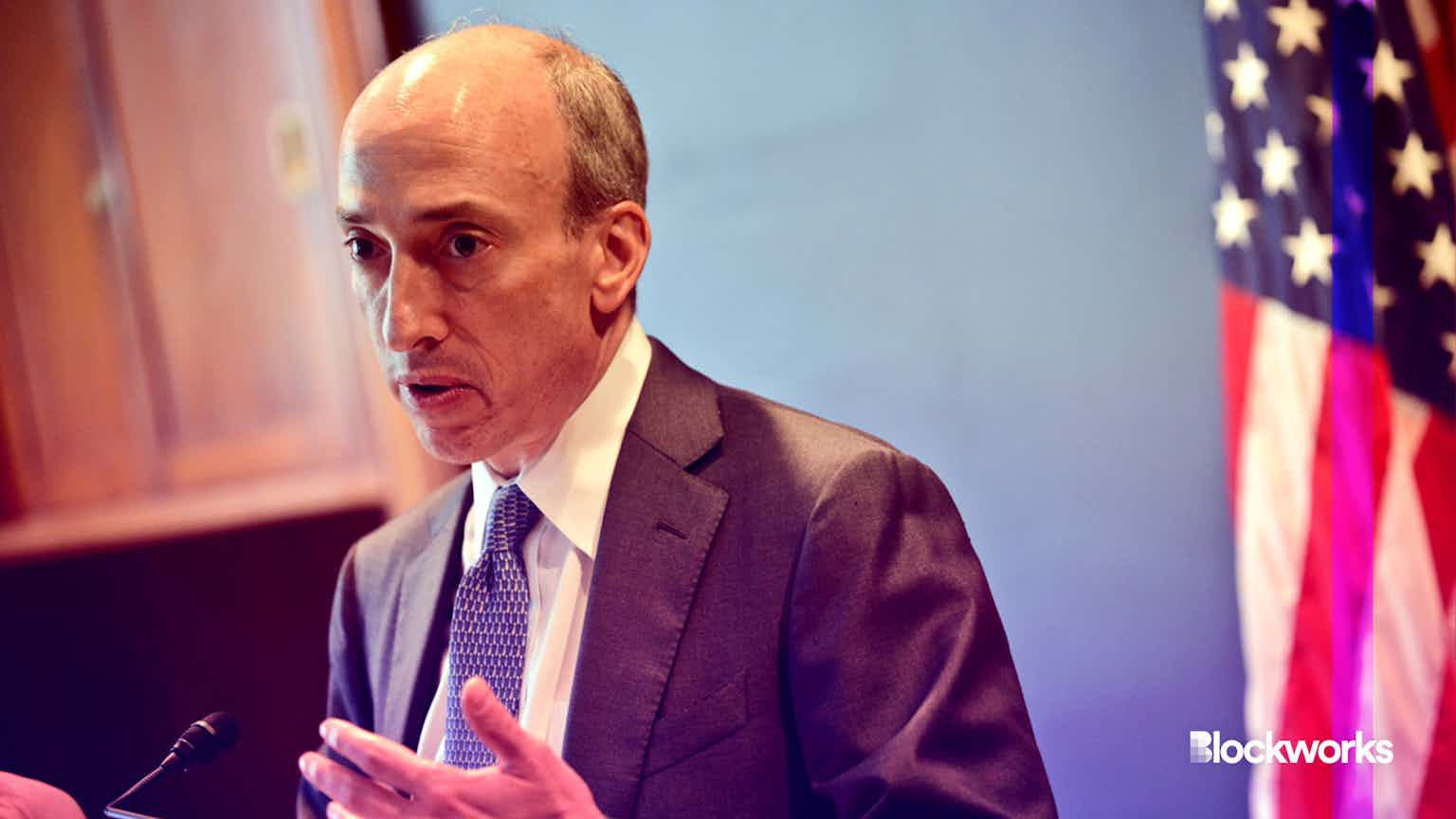Washington Think Tank Says Crypto Regulation by Enforcement Is Just Fine
Recent turmoil in the crypto market has accelerated the need for tougher crypto regulation, according to US think tank analysts

Exclusive art by Axel Rangel modified by Blockworks
The need for cryptocurrency regulation is becoming increasingly clear following scandals and controversies in the industry, according to a prominent US nonprofit research institute.
The Foundation for Defense of Democracies (FDD) released a research paper Thursday titled “The Underside of the Coin: Illicit Finance Risks in Virtual Assets.”
Authors Richard Goldberg and Alex Levitov laid out six recommendations to close what the institute sees as regulatory gaps existing among virtual asset service providers (VASPs).
VASPs are those businesses or individuals that engage in activities involving virtual assets, such as cryptocurrencies. Examples of VASPs include cryptocurrency exchanges, wallet providers and other businesses that provide virtual asset-related services to customers.
Of the six recommendations, the FDD says the US should first work with the Financial Action Task Force (FATF) to ensure that member states implement the guidance for crypto regulation.
That includes implementing the travel rule and standardizing crypto terminology across foreign jurisdictions. The travel rule refers to a set of regulations that require financial institutions, including VASPs, to obtain and share certain customer information when transferring funds.
Regulators should consider regulating digital assets through enforcement actions to communicate key compliance messages, the authors wrote. That includes taking an example set by the Treasury Department’s Office of Foreign Assets Control in the past including allegations against digital wallet provider BitGo and crypto mixer Tornado Cash.
Policymakers and the crypto community must also strike a balance between privacy and security when regulating mining pools, mixers and privacy coins, the pair recommended third on their list.
Cybersecurity mandates, blockchain analytics tools and more
Minimum standards for cybersecurity should also be required of VASPs, the authors recommended in their fourth point.
“The failure of VASPs to invest in cybersecurity measures leaves the public vulnerable. The administration and Congress should consider minimum standards for cybersecurity for a VASP to maintain its legal status,” the authors said.
The paper also recommends that the Biden administration collaborates with Congress to provide federal, state, and local agencies access to necessary blockchain analytics tools.
To that end, the authors urge the passing of legislation mandating that exchanges integrate these tools and software into their compliance frameworks. Penalties would then apply to platforms that fail to comply.
In April 2022, the New York State Department of Financial Services advised all virtual currency businesses to use blockchain analytics to bolster their know your customer (KYC)-related controls and screen for sanctions on on-chain activities
Similar measures are being encouraged for adoption by federal regulators.
As a final recommendation, the authors said due diligence regulations should be established for crypto exchanges in higher-risk jurisdictions, including the requirement of user identity verification.
“Exchanges in higher-risk jurisdictions require little or no user identity verification to transfer crypto assets or convert crypto assets to a fiat currency,” the paper reads.
In the coming years, there will be a need for bipartisan leadership to evaluate and weigh the costs and benefits of regulatory and legislative measures, they added.
Ignoring existing problems could lead to a national security crisis, as seen in the FTX implosion, they said.
Start your day with top crypto insights from David Canellis and Katherine Ross. Subscribe to the Empire newsletter.





